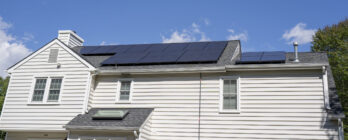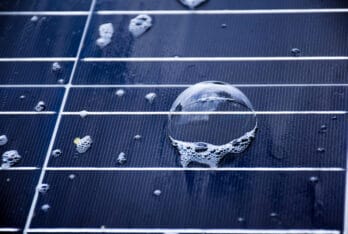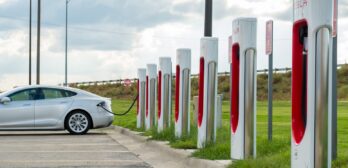Top Tips to Save Energy and Lower Your Bills
You can easily reduce your property’s energy consumption by either making some simple personal changes or some bigger home improvements. Usually people’s reasons to adopt a more energy saving attitude is to lower their utility bills but also to safeguard the environment.
In the article below you can find some helpful tips on how you can save energy in your home, from smaller changes to bigger ones. Energy conservation means the prevention of the wasteful use of energy to ensure costs are lowered but also environmental impact is reduced. That also means using less resources such as gas and electricity.
How To Save Energy And Electricity
Here are some tips on how you can start making changes right away:
- Change your daily behaviors
- Switch to energy-saving light bulbs
- Use smart power strips
- Invest in energy efficient appliances
- Invest in smart home devices
- Insulate and weatherize your home
- Reduce water heating expenses
- Install energy efficient windows
- Install a smart thermostat and set schedules around occupancy in the home
- Tune up or upgrade your HVAC system (if you have one!)
Change Your Daily Behaviors
The first step to decrease your energy consumption is to make some daily changes in your routine, not necessarily purchasing energy efficient items!
Simple changes such as switching the lights off and appliances when not using them can really add up and make a difference. Also reducing your use of energy-intensive appliances during peak times such as the dishwasher or the dryer and waiting till evening, can be a great start. For example, doing a dryer load during a hot summer afternoon not only adds heat to the home, but load to the energy grid. Consider hang drying or drying at night to limit energy use during peak times.
In terms of behavior, changes such as turning down your thermostat in the winter and reducing your A/C usage in the summer can have a great and beneficial impact too. Nearly half of an average household’s utility bills are heating and cooling costs, so you can see where the savings are already.
Switch To Energy-Saving Light Bulbs
Traditional light bulbs use a higher amount of electricity than halogen incandescent bulbs, compact fluorescent lights (CFLs), and light-emitting diode bulbs (LEDs). If switching to these newer types, you can save up to 25-80% of electricity and they usually last 3 to 25 times longer than traditional bulbs.
Although they are pricier, in the long run you will save more on your bills (and help the environment at the same time).
Use Smart Power Strips
Leaving appliances or electronics on standby can generate a huge energy waste. Some studies have estimated that around 75% of electricity used to power electronics is wasted when switched off, leading to a loss of around $200 per year!
Smart or advanced power strips can help solve the phantom power issue by simply switching off the electricity when the household electronics are not in use. A timer can also be set to turn off at a specific time or after a certain amount of inactivity.
Install a Smart Thermostat
Switching to a smart thermostat can help you save energy and it turns off heating and cooling automatically when you are away or asleep. It’s a quicker way to avoid wasting energy without needing to upgrade your HVAC system, which can be costly.
Studies show that a programmable thermostat can save you roughly $180 per year and they come in a variety of models to fit around your life and your schedule. Some have features that show when you need to replace your HVAC filter or when an issue arises too.
Invest In Energy Efficient Appliances
Household appliances use roughly 13% of a household energy use. If purchasing a new appliance, make sure you check the initial purchase price and the annual operating cost. Although some of the most energy efficient appliances can be costly, in the long run their operating costs can be up to 25% lower than normal, cheaper models.
Make sure that your new appliance has an ENERGY STAR® label, which is an official guarantee that the appliance is energy-efficient both during use and in standby. The savings obviously depend on the different kind of appliance used: for example a washing machine can consume up to 25% less energy and 45% less water, whilst a refrigerator can use up to 9% less energy.
Once you’ve purchased your new ENERGY STAR® appliance, check with you local utility to see if they have approved rebates programs. You may qualify for extra $ off your utility bill, such as this Dominion Energy Virginia program.
Reduce Your Water Heating Expenses
Water heating also plays a big part in energy consumption and waste. Apart from purchasing an energy efficient water heater, other tips to save on your water heating expenses are to reduce your hot water usage, turn down your water thermostat and insulate your water heater and the first 6ft of hot and cold water pipes.
If replacing your water heater with an efficient one, make sure that the type of heater can meet your requirements and check what fuel it uses. Tankless water heaters can be energy efficient but not ideal for large householders. Efficient water heaters can be up to 300% more energy-saving than a conventional one!
Install Energy Efficient Windows
Windows are a significant source of energy waste – they can add up to 10-25% of your total heating bill. To prevent heat loss through your windows, you can replace single-pane windows with double-pane ones.
For homes in colder regions, gas-filled windows with “low-e” coatings can significantly reduce your heating expenses. In addition, installing interior or exterior storm windows can reduce heat loss by up to 20%. You should especially consider storm windows if your region experiences frequent extreme weather events.
In warmer climates, heat through windows may be a problem. In addition to minimizing heat loss, low-e coatings on windows can reduce heat gain by reflecting more light and lowering the amount of thermal energy that enters your home. Depending on where you live, ENERGY STAR windows can save you $20-$95 each year on your utility bills. Window shades, shutters, screens, and awnings can also provide an extra layer of insulation between your home and outside temperatures, leading to even more energy conservation.
Tune Up or Upgrade Your HVAC System
Traditionally a HVAC system is made of heating, ventilation, and air conditioning equipment.
As we mentioned before, heating a home can use more than 40% of the total household energy use alone.
If living in and using a Southern ENERGY STAR® certification, you can save up to 12% on your heating bill, which is roughly $36 a year.
Air conditioning on the other hand, only contributes to roughly 6% of the total energy usage in your household but still installing an ENERGY STAR® unit means your home will be 8% more efficient than if having a traditional one. Most air conditioning systems come integrated with a heating system so we recommend purchasing them together to ensure they both function at their maximum energy efficiency level.
Switching and upgrading your HVAC ventilation system can help with energy efficiency, as it’s composed of different ducts that spread cold air throughout your property. If not properly insulated and looked after, they can experience leaks and lead to energy waste, adding extra dollars to your utility bills. Keeping your ducts and ventilation system well-maintained can reduce your expenses by up to 20%. Consider a bi-annual HVAC tune up each Spring and Fall to ensure your system is operating in peak performance.
Weatherize Your Home
Weatherizing, which means sealing any air leaks around your household, is another great time to avoid energy being wasted and reducing your utility bill. Usually leaks come from vents, windows or doors. To prevent these, make sure that there are no openings or cracks between door frames, walls, windows or vents.
A common material used to seal leaks between stationary objects like walls and window frames is caulk. For cracks between moving objects, like doors or opening windows, you can use weather stripping. These are simple and readily available materials and techniques that can truly make the difference. Make sure you also check for any gaps in your floor, walls, or leaks from wiring, ducting and plumbing.
Usually air leaks out of your home from the interior into the attic through small gaps, whether from ducts, light fixtures or even the attic hatch, as hot air rises. It is clear to see why not fixing these air leaks can lead to your utility bill considerably increasing, so ensure your attic is well-insulated, or even better your whole home.
Insulate Your Home
As mentioned above, fully-insulating your whole home is one of the key ways to ensure your utility bills stop rising and energy isn’t wasted. A well-insulated home retains heat during winter, and keeps heat out during the summer. The ‘R-value’, which is the recommended level of heat resistance for your insulation, depends on your location and the climate you live in. If in a warmer state, the recommended R-Value is much lower than in a colder state.
Also the kind of insulation recommended depends on the area of your property. The top five areas that people usually focus on are walls, floors, basement, attic and crawlspace. You can find more recommendations regarding insultation from the Department of Energy.
So Why Should You Save Energy In The First Place?
Obviously energy conservation is very important for a variety of reasons, such as saving money, increasing your home value but most importantly protecting the environment. Making some of the changes we mentioned above can really be beneficial, regardless of your main motive.
Solar Power Efficiency
If you’re looking for a clean energy method of supplying your home with its own power, just look up. The sun is an excellent source of electricity by using solar panels. With solar panel efficiency getting better and better, many homes are able to derive all of their power from the sun.
Contact us today to learn how you can make the switch to solar and can save on your bill.



